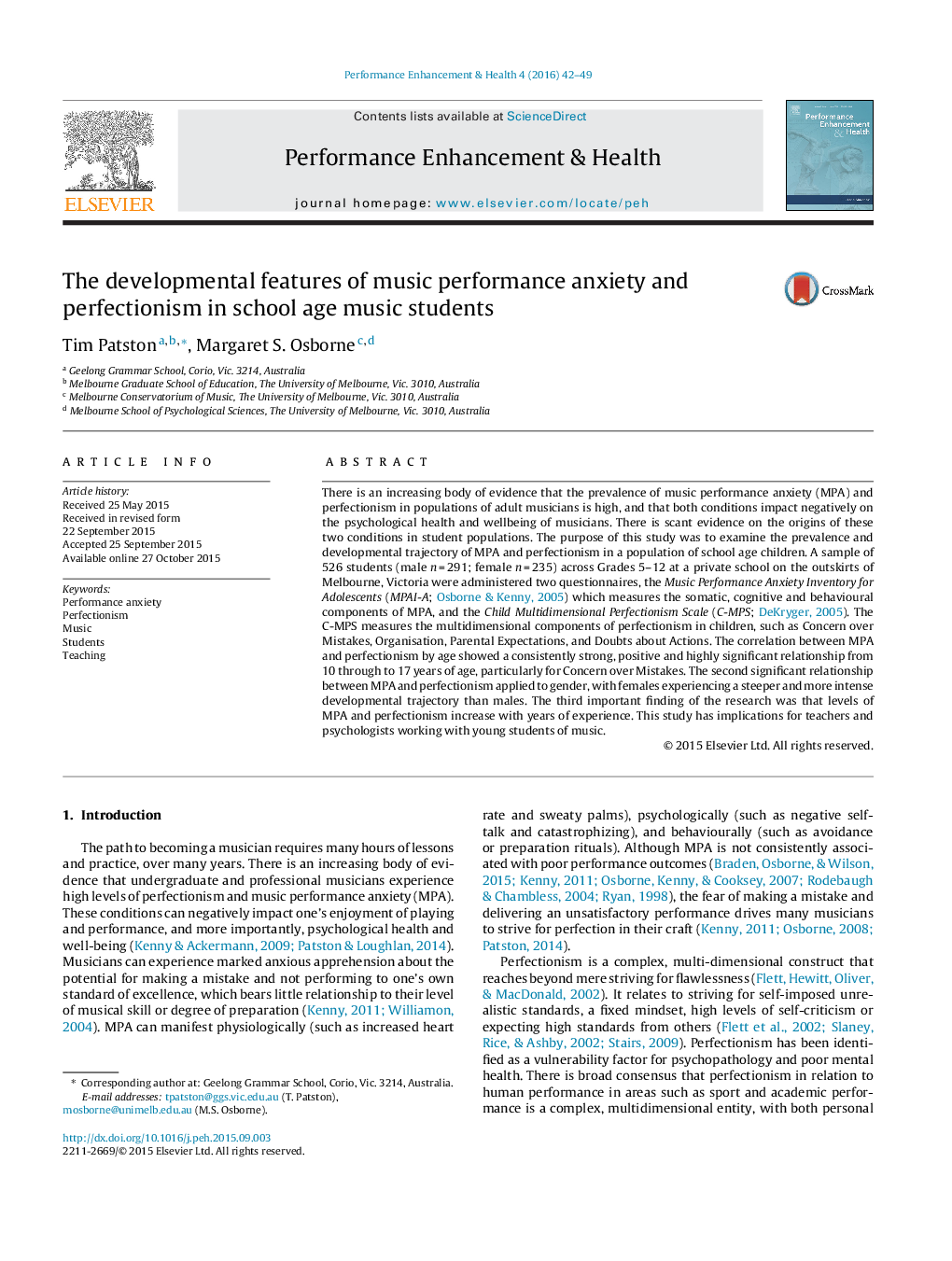| Article ID | Journal | Published Year | Pages | File Type |
|---|---|---|---|---|
| 889552 | Performance Enhancement & Health | 2016 | 8 Pages |
•Music performance anxiety and perfectionism affect adult musicians.•The study examined the development of music performance anxiety and perfectionism in school age children.•There was a strong correlations between music performance anxiety and perfectionism between ages 10 and 17.•Levels of music performance anxiety and perfectionism increase with years of experience.
There is an increasing body of evidence that the prevalence of music performance anxiety (MPA) and perfectionism in populations of adult musicians is high, and that both conditions impact negatively on the psychological health and wellbeing of musicians. There is scant evidence on the origins of these two conditions in student populations. The purpose of this study was to examine the prevalence and developmental trajectory of MPA and perfectionism in a population of school age children. A sample of 526 students (male n = 291; female n = 235) across Grades 5–12 at a private school on the outskirts of Melbourne, Victoria were administered two questionnaires, the Music Performance Anxiety Inventory for Adolescents (MPAI-A; Osborne & Kenny, 2005) which measures the somatic, cognitive and behavioural components of MPA, and the Child Multidimensional Perfectionism Scale (C-MPS; DeKryger, 2005). The C-MPS measures the multidimensional components of perfectionism in children, such as Concern over Mistakes, Organisation, Parental Expectations, and Doubts about Actions. The correlation between MPA and perfectionism by age showed a consistently strong, positive and highly significant relationship from 10 through to 17 years of age, particularly for Concern over Mistakes. The second significant relationship between MPA and perfectionism applied to gender, with females experiencing a steeper and more intense developmental trajectory than males. The third important finding of the research was that levels of MPA and perfectionism increase with years of experience. This study has implications for teachers and psychologists working with young students of music.
